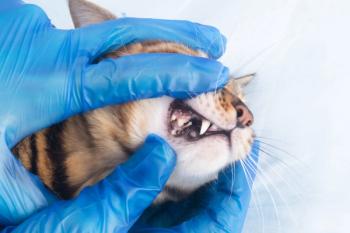
- dvm360 February 2020
- Volume 51
- Issue 2
AAFP releases updated feline retrovirus guidelines
The new guidelines detail for veterinary professionals current knowledge on the pathogenesis, diagnosis, prevention and treatment of retrovirus infections in cats.
The American Association of Feline Practitioners (AAFP) kicked off the New Year by introducing a comprehensive update to its
Last week’s release is the first official update to the document in 12 years.
According to Susan Little, DVM, DABVP (Feline), co-chair of the guidelines, the report was written by an international panel of experts that included both researchers and veterinarians. Based on numerous studies published since the AAFP’s last iteration, the panel felt that although guidelines for the prevention of infection have been available for decades, there remained a need to improve compliance with testing and vaccination recommendations.
The 2020 guidelines offer a great deal of new information about feline leukemia virus (FeLV) and feline immunodeficiency virus (FIV) infections, Dr. Little explained in a
Current reports indicate that about 3% to 5% of tested cats in North America are infected with FIV, acccording to the release. The virus is more common in males and in cats prone to fighting with other cats. It is seen less frequently in kittens and neutered adults. To date, no marketed vaccines are available to protect cats against FIV infection. The absence of a vaccine—coupled with a positive spike in veterinary practices and shelters testing for retroviruses—underscores the importance of increased education on the topic.
“Education and early testing can greatly assist in the treatment and management of feline retrovirus infections,” said AAFP CEO Heather O’Steen, CAE, in the release. “Routine veterinary care, when cats are well and when they are sick, can lead to better care and decrease the spread of infection.”
FeLV infection rates are similar to those of FIV, with an estimated 4% of tested cats in North America found to be infected. However, vaccines to protect cats against FeLV infection are readily available. Veterinary protocols indicate that the vaccine is administered to kittens, again 1 year later and for cats that have an ongoing risk of infection.
The 32-page illustrated document addresses “rapidly evolving knowledge about how testing results, clinical expression and prognosis for FeLV may change over time relative to the cat’s current immune response and resulting levels of virus in circulation; how quantitative testing may be used to better inform clinical decision-making; and an emerging trend in which screening for FeLV and FIV is increasingly shifting from animal shelters, where cats are adopted, to veterinary practices, where animals receive comprehensive care,” Julie Levy, DVM, PhD, DACVIM, DABVP (Shelter Medicine), explained in the release.
In addition to language intended for veterinarians, the guidelines also include a succinct client brochure that provides information for pet owners regarding transmission, testing, prevalence and precautions.
“We are pleased to present these guidelines to support both veterinary professionals and cat caregivers in the management of these illnesses,” O’Steen said. “We further stress the partnership between veterinarians and cat owners in caring for infected cats because with regular healthcare and reduced stress, cats infected with retroviruses, especially FIV, may live many healthy years.”
Articles in this issue
almost 6 years ago
Pet spending continues to break recordsalmost 6 years ago
Reading ECGs in veterinary patients: an introductionalmost 6 years ago
Fleas: How to conquer these blood-feeding, egg-laying machinesalmost 6 years ago
VMX 2020—Conquering canine anxiety during veterinary visitsalmost 6 years ago
Veterinary students attend VMX for freealmost 6 years ago
AVMA releases new pet euthanasia guidelinesalmost 6 years ago
Court rules against TV veterinarian Dr. Polalmost 6 years ago
New Year’s resolutionalmost 6 years ago
Commentary: Time for action on student debtNewsletter
From exam room tips to practice management insights, get trusted veterinary news delivered straight to your inbox—subscribe to dvm360.





